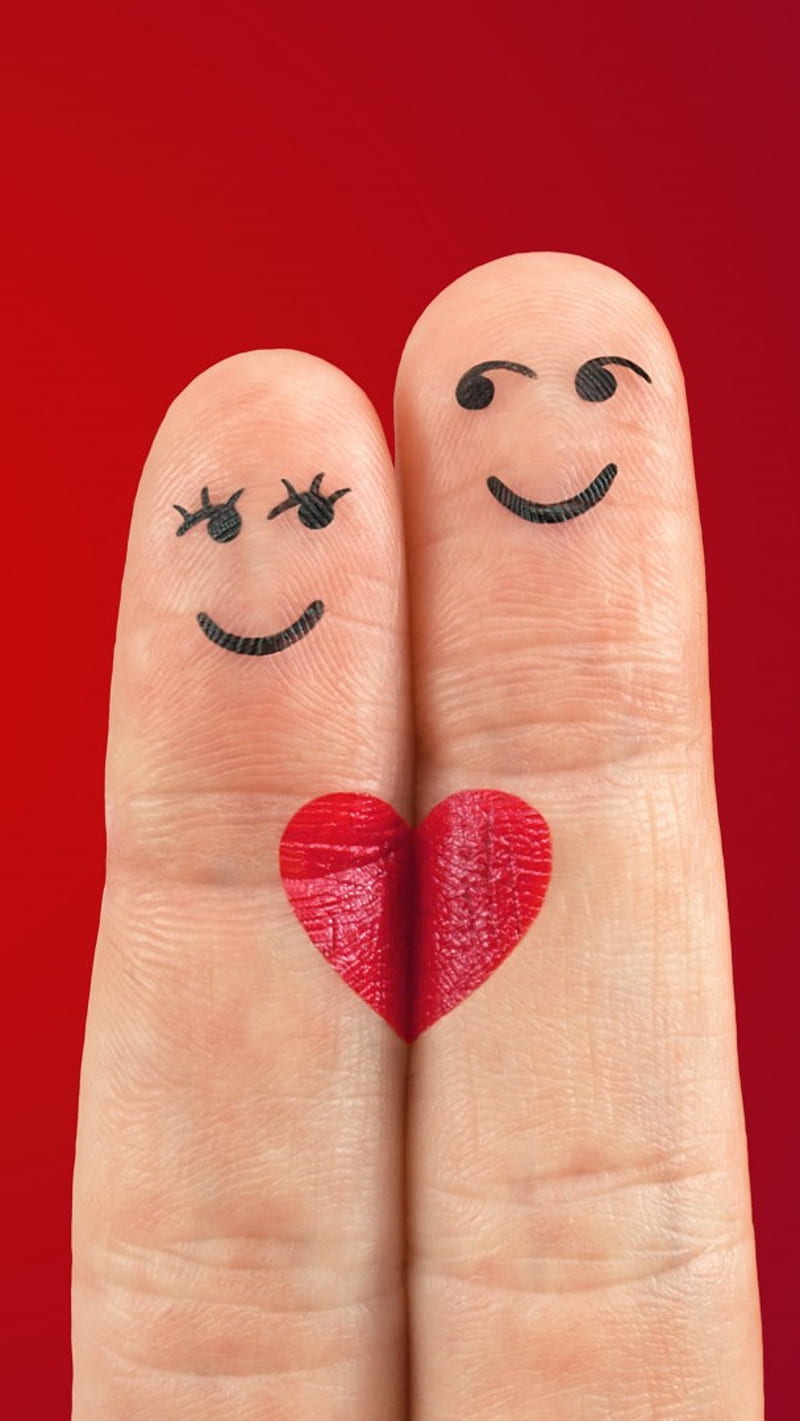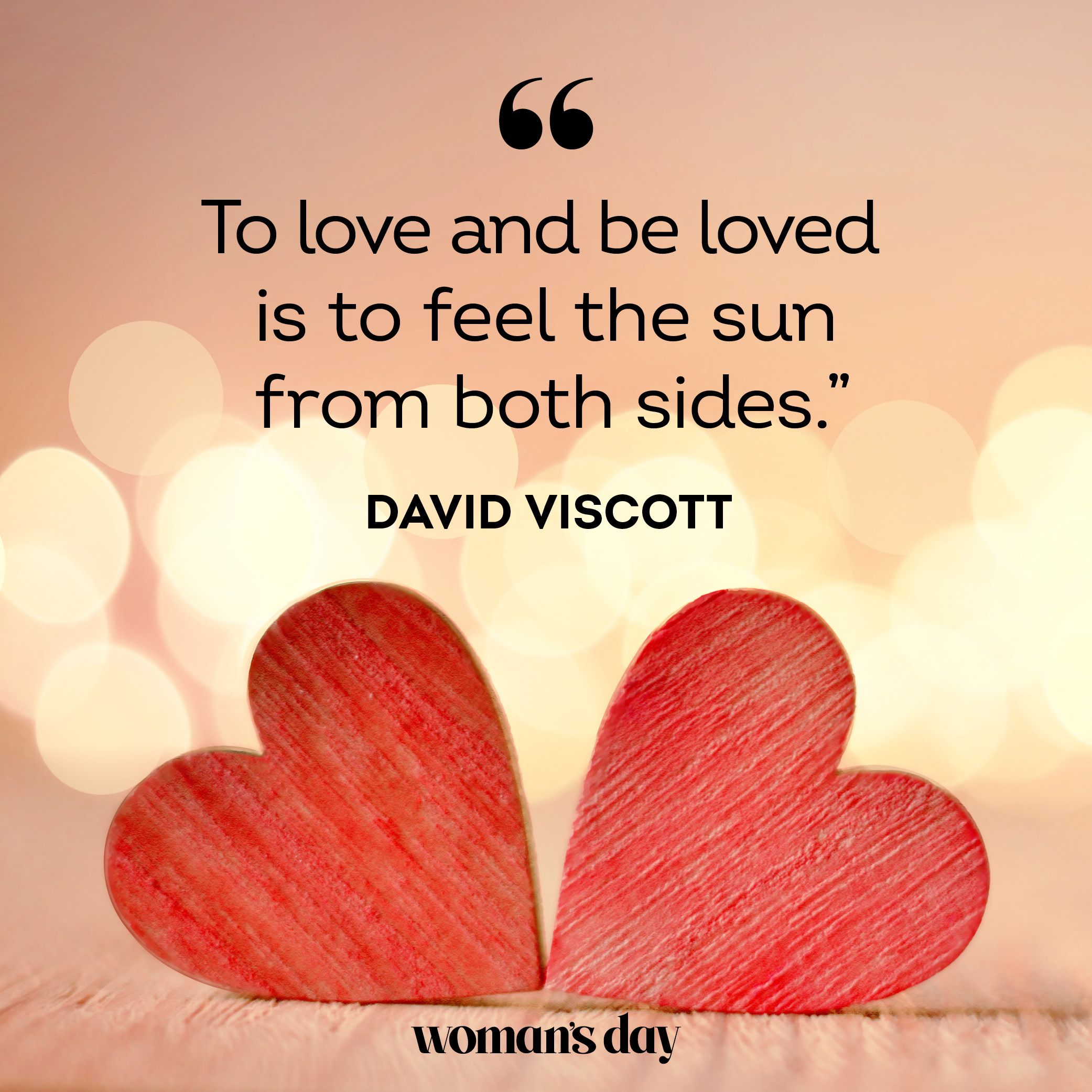Sometimes, you hear those three little words, "I love you," and a wave of warmth just washes right over you. It's a feeling that, you know, just settles deep inside, a recognition of something truly special. We all have moments like that, don't we, where someone shares a piece of their heart, and you want to give a piece of yours right back? It’s a very natural human impulse, that, to respond to affection with affection, making connections stronger, more real, in a way.
Thinking about how we reply to such a significant declaration, it’s a bit like trying to capture sunshine in a jar, really. The English phrase "I love you too" seems simple enough, yet its meaning carries so much weight, so much personal history. It speaks to a deep affection, a bond, something that feels, you know, incredibly important, like your whole being is involved. This feeling, this connection, it's something that, honestly, feels the best and makes us, like, the most fulfilled, almost. It’s a powerful emotional experience, involving changes in how our bodies even work, our very brain chemicals.
When we think about expressing this reciprocal feeling in another tongue, say, "love you too in French," it opens up a whole new world of nuance, a different kind of beauty, perhaps. French, often called the language of affection, offers various ways to say something similar, each with its own subtle flavor, its own particular warmth. It’s about choosing the words that truly resonate with what you feel, what you want to share, and that, is pretty important, you know, when you’re talking about matters of the heart. So, how do we really capture that heartfelt response in a language so rich with emotion?
- Outlander Red Dress
- Kobe Soft Gif
- Affordable Wedding Venues In Los Angeles
- Rachel Dunn Actress
- Los Angeles Piers
Table of Contents
- What Is Love, Really?
- Speaking from the Heart - How Do We Say "Love You Too in French"?
- The Delicate Dance of Relationships - Why Is Expressing "Love You Too in French" Sometimes Hard?
- Beyond the Words - Does "Love You Too in French" Go Deeper?
- Signing Off with Affection - How to Use "Love You Too in French" in Cards?
- The Echo of Feeling - What Does "Love You Too in French" Truly Convey?
- Finding Your Voice - When to Say "Love You Too in French"?
- The Power of Connection - Why "Love You Too in French" Matters
What Is Love, Really?
Well, to begin, thinking about what love truly means, it's a bit like trying to hold water in your hands, isn't it? It slips and shifts, yet its presence is undeniable. We often think of it as a strong affection, a feeling that comes from deep personal ties or kinship. It’s about, you know, that intense fondness for another person, that sense of connection that just feels right. This feeling, it includes elements like care, a sense of closeness, even a protective instinct, and of course, attraction and trust, too. It’s a pretty complex thing, really, encompassing so many different parts of us, our thoughts, our feelings, and how we act.
For instance, some folks say love is just an animal emotion, kind of like other feelings we have, but the one unique thing about it, they might argue, is that it feels the best, makes us feel the most complete. It's a powerful, intricate experience, one that actually changes our body chemistry, affecting, like, the very chemicals in our brains. This isn't just a simple feeling; it’s a multifaceted construct, involving desire, closeness, and a real commitment to another. Unlike a quick attraction, genuine affection embodies mutual regard, a shared understanding of feelings, and constant support. The definition of this feeling in a bond goes way past just simple emotions, you know, it’s much more than that.
So, when someone says "I love you," and you want to reply with "love you too in French," you're not just echoing words. You're acknowledging this whole intricate web of feelings, this deep connection. It’s a response that carries the weight of all those definitions, all those experiences, basically. It’s a way of saying, "Yes, I feel that profound connection too," and that, is pretty significant, I mean, it really is. It’s about recognizing the consequences of causing pain to yourself or others, and it also allows space for feelings like anger, sadness, or hurt to be shared and let go, which is quite important, actually.
- Sadhguru And Isha Foundation
- Oldest Person With Mowat Wilson
- Leo Suter Movies And Tv Shows
- Rachel Dunn Fashion Student
- Kyra Phillips And John Roberts Wedding
Speaking from the Heart - How Do We Say "Love You Too in French"?
When it comes to responding with "love you too in French," there are a few wonderful ways to do it, each carrying a slightly different shade of meaning. The most common and direct way is "Moi aussi, je t'aime." This translates literally to "Me too, I love you," and it’s a very clear, straightforward response. It’s what you might use in most situations where someone has just told you they care for you deeply. It’s simple, yet it conveys that reciprocal feeling quite powerfully, honestly.
Another option, perhaps a little more poetic or intimate, is "Je t'aime aussi." This places the "aussi" (also/too) after the verb, giving it a slightly softer flow, a bit more of a natural rhythm in conversation. It still means "I love you too," but it might feel, you know, just a little more gentle, a little less emphatic on the "me" part. For instance, if you're writing a card to a romantic interest, signing off with something like this can feel quite personal and warm, really. It shows that you're responding to their feelings, sharing your own in return, and that, is quite lovely.
Then there's "Je vous aime aussi," which uses the formal "vous." This is important if you're speaking to more than one person, or to someone you maintain a formal distance with, though in a romantic context, the informal "tu" (t'aime) is almost always used. So, in terms of "love you too in French" for a romantic partner, stick with "Moi aussi, je t'aime" or "Je t'aime aussi." These phrases, basically, are about acknowledging that strong affection, that bond, and giving it back. They are about that feeling of being completely fulfilled, that, is what makes them special.
The Delicate Dance of Relationships - Why Is Expressing "Love You Too in French" Sometimes Hard?
Relationships, you know, are never just a straight line; they have their ups and downs, their twists and turns. Sometimes, even when you feel that strong affection, saying "love you too in French" or even in English, can be a real challenge. We might find ourselves in situations where, like, we love someone and truly don't want to let them go, but from our own side, it feels incredibly difficult to hold onto them, even if they say they want to get back with us now. This kind of struggle, this internal push and pull, can make expressing those deep feelings, well, a bit complicated, you know?
Consider, for example, making a huge decision, like buying a house and completely renovating it, only to realize later that you don't actually like living there. You might love the house itself, but the place, the surroundings, just don't feel right. This kind of personal upheaval, this feeling of having made a mistake, can really affect your emotional state, making it harder to connect deeply, to say "love you too in French" with the same ease. It’s a very human experience, that, when external pressures or internal doubts weigh heavily on our ability to express affection, to just be open.
It's also worth thinking about how we perceive love itself. There's a quote, like, from Chris Rock’s newest comedy special, that suggests "only women, children, and dogs are loved." This kind of idea, it sparks a little debate, doesn't it? It makes you wonder about the universal nature of affection, and how our own experiences shape what we believe about love. If someone holds a view that limits who can be truly loved, it might, in a way, make it harder for them to fully accept or return the feeling, to say "love you too in French" without reservation. It’s a pretty interesting thought, how our beliefs about love affect how we give and receive it, actually.
Beyond the Words - Does "Love You Too in French" Go Deeper?
When we say "love you too in French," it’s more than just a simple phrase; it’s a connection to something much bigger, something that, you know, goes beyond everyday communication. My text, for instance, talks about how love transcends all religion, suggesting that specific religions and mythical stories, in every kind of variation, might miss the point entirely. This idea, that love is a fundamental reality, a part of our very nature as beings, implies that the expression of it, like saying "love you too in French," taps into something universal, something truly profound, almost.
It's about recognizing that, regardless of what we believe or where we come from, we are all just part of one reality, one nature. If we can communicate, if we can feel this deep affection, then expressing it, in any language, becomes a way of affirming that shared existence, that common humanity. So, when you utter "love you too in French," you're not just speaking words; you're participating in a larger conversation about human connection, about the very essence of what it means to care for another. It's a powerful acknowledgment, that, of a bond that doesn't need external validation or specific doctrines, really.
This deeper meaning suggests that the feeling of love itself, and its reciprocal expression, is about shared human experience, about intimacy, passion, and a commitment that involves care, closeness, and trust. It’s a feeling that allows for the full spectrum of human emotion, even anger, grief, or pain, to be expressed and released, which is pretty important for genuine connection. So, saying "love you too in French" isn't just about mirroring a statement; it's about affirming a shared emotional landscape, a mutual journey of feeling and connection, you know, that, is what makes it so meaningful.
Signing Off with Affection - How to Use "Love You Too in French" in Cards?
Imagine, for a moment, you're putting together a card – maybe for a birthday, or Christmas, or just to say congratulations – and it’s for someone you have a romantic interest in. How do you sign off, in a way that truly captures your feelings, that says "love you too in French" without actually having to write the whole phrase out? This is where understanding the nuances of expressing affection becomes really useful. You want to leave them with a warm feeling, a sense of your deep regard, and that, is a bit of an art, isn't it?
Instead of just a simple "love," which can feel a bit too brief for a romantic connection, you might opt for something that hints at that reciprocal feeling. For instance, you could use a phrase like "Avec tout mon amour" (With all my love) or "Je t'embrasse fort" (I hug you tightly/I send you a big kiss). These phrases, while not directly translating to "love you too in French," carry the same warmth and depth of feeling, implying a mutual affection. They communicate that you share a strong bond, that, is what makes them so effective.
The choice depends a lot on the context of your relationship and how comfortable you are with open expressions of affection. If you've already said "I love you" to each other, then a simple "Je t'aime" at the end of a card, perhaps with your name, implies the "too" because of the established connection. It's about letting your feelings come through in a way that feels natural and true to your relationship, you know, that, is pretty important. It’s about that strong affection, that deep bond, that sense of being completely fulfilled when you are with them, basically.
The Echo of Feeling - What Does "Love You Too in French" Truly Convey?
The phrase "love you too in French," when spoken or written, conveys more than just a simple agreement; it's an echo, a resonance of the affection that was just expressed. It signifies a shared experience of profound feeling, a mutual recognition of that deep bond. It's about intimacy, passion, and commitment, all rolled into a few simple words. This isn't just about liking someone very much or being romantically attracted; it's about a connection that embodies mutual respect, a shared understanding of feelings, and unwavering support, basically.
It's a declaration that goes beyond fleeting attraction, signaling a true, lasting connection. When someone says "Je t'aime," and you respond with "Moi aussi, je t'aime," you are affirming that the feelings are indeed returned, that the care, closeness, protectiveness, attraction, affection, and trust are all present on both sides. This kind of exchange, it strengthens the ties, making the relationship feel more secure, more real, you know. It’s a very important moment, that, in the life of a connection between people.
The very act of saying "love you too in French" also points out the consequences of hurting oneself or others within the relationship. It implies a shared responsibility for the emotional landscape, a recognition that love allows for the expression and release of difficult emotions like anger, grief, or pain. It's a sign of a relationship where feelings can be openly shared, where there's room for vulnerability and honest communication. So, it’s not just a sweet sentiment; it’s a statement about the nature of the bond itself, about how it functions, really.
Finding Your Voice - When to Say "Love You Too in French"?
Knowing when to say "love you too in French" is just as important as knowing how to say it. It’s about timing, about feeling the moment, and about the context of your relationship. You wouldn't, for instance, typically blurt it out during a formal business meeting, unless, you know, the meeting was with your romantic partner and the context was very specific and personal. It’s usually reserved for moments of intimacy, when emotions are shared openly and genuinely, basically.
Think about those quiet moments, perhaps after a heartfelt conversation, or when you’re just spending time together, feeling close and connected. It could be in response to a direct "Je t'aime," or it could be a spontaneous expression when you feel a surge of affection. The key is that it feels natural, that it comes from a place of genuine feeling, and that, is pretty important. It’s about letting your heart guide your words, rather than just saying it out of habit or obligation, which, you know, wouldn't feel quite right.
It's also about respecting the other person's feelings and the stage of your relationship. If you're just starting out, a very strong declaration might feel, like, a bit too much, a bit too soon. But if you've been together for a while, and the feelings are clearly mutual, then responding with "love you too in French" can deepen your bond and reaffirm your connection. It's about finding your own voice within the relationship, and expressing your feelings in a way that feels authentic to you and your partner, which, is quite lovely, really.
The Power of Connection - Why "Love You Too in French" Matters
Ultimately, the power of saying "love you too in French" lies in its ability to solidify connection, to create a shared emotional space. It’s a simple phrase, yet it carries the weight of all those complex feelings we've discussed: intimacy, passion, commitment, care, and trust. It’s about recognizing that we are beings in nature, capable of profound affection, and that communicating this affection is a fundamental part of our experience, you know. It’s what makes us feel fulfilled, what gives our relationships depth and meaning, almost.
Whether you're planning a trip, dealing with relationship challenges, or simply looking for the right words to sign a card, the essence of "love you too in French" remains the same: it’s a reciprocal affirmation of deep, heartfelt affection. It transcends simple words, reaching into the very core of human connection. This expression, in its various forms, allows us to share our most tender feelings, to build stronger bonds, and to truly connect with another person on a very meaningful level, that, is what makes it so special.
From the insights of social scientists about how love contributes to our wellbeing, to the simple joy of feeling truly connected, understanding how to express "love you too in French" is about cultivating more love in our lives. It’s about giving voice to that powerful, complex emotional experience that changes our body chemistry, that makes us feel truly alive. It’s about that strong affection, that deep bond, that sense of being completely fulfilled, you know, that, is what it all comes down to, basically.
- Why Did Machine Gun Kelly Switch Genres
- Anna Faris Net Worth 2024
- Priyanka Chopras Life After Marriage
- Gulf Shores Deep Sea Fishing
- Nipsey Face Tattoo



